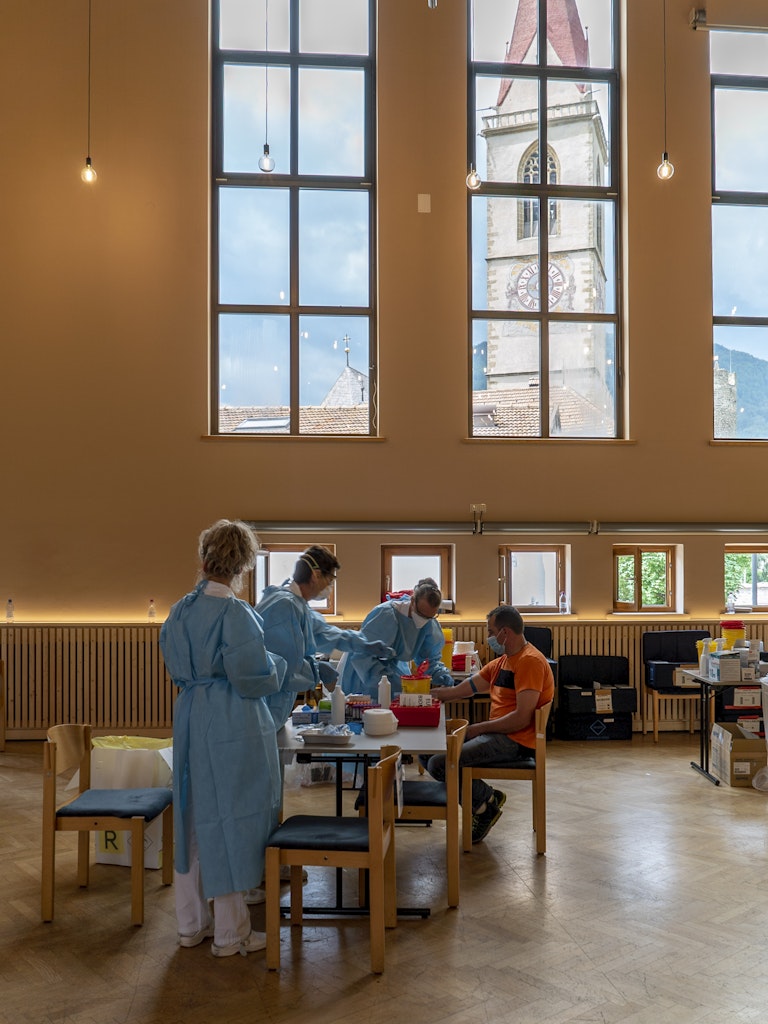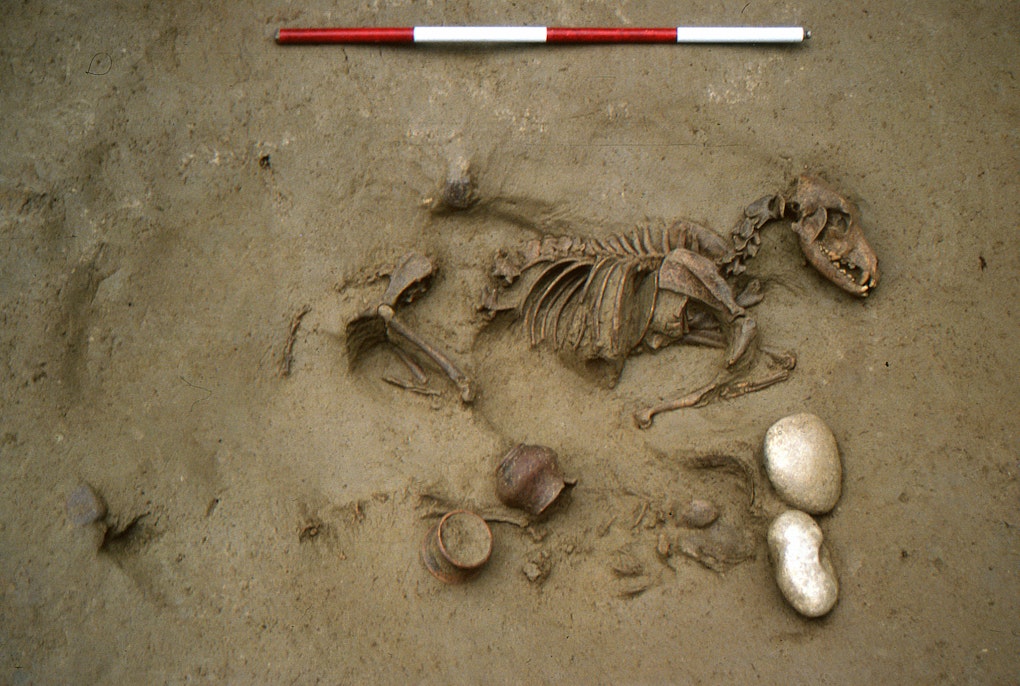CHRIS Covid-19 study in Val Venosta
Credit: Eurac Research | All rights reserved
magazine_ Article
Covid-19: links between genes and disease severity
Bolzano research centre among institutions involved in a study to reveal human genome locations associated with Covid-19 severity
In March 2020, thousands of scientists around the world joined forces to investigate the questions at the forefront of the medical debate on the pandemic: what genetic factors influence the severity of Covid-19 infections and why do some people develop a serious illness that requires hospitalisation while others have mild or no symptoms?
The results of the research, published in Nature only a few days ago, revealed extraordinary findings 13 loci - points in the human genome - were identified as being strongly associated with severe Covid-19 infection. This discovery comes from one of the world's largest genetics studies: the group examined the genomes of almost 50,000 patients with Covid-19 and another two million uninfected people. The data findings included participants in the studies conducted by Eurac Research in South Tyrol over the past year.
The Covid-19 Host Genomics Initiative was launched in March 2020 by the Finnish Institute of Molecular Medicine at the University of Helsinki. The initiative has now grown to become one of the most extensive collaborations on human genetics, currently including more than 60 studies from 25 different countries. Thanks to the huge amount of data available, the researchers have been able to produce statistically robust analyses in a relatively short time, achieving results that no research institution could have achieved independently. Of the 13 loci identified, two were found most frequently in East and South Asian populations. The analyses also showed that some of these loci are located in close proximity to genes involved in serious lung diseases such as cancer or pulmonary fibrosis. In these cases, inhibiting the gene could be a therapeutic strategy to be explored further. Researchers have also identified other factors that influence the severity of the disease, such as smoking and a high body mass index.
Research figures
60
Studies
25
Countries involved
Over the past year, the Eurac Research Institute of Biomedicine has carried out two studies on Covid-19 in the province. "When the Host Genomics Initiative consortium started, we decided to make our data available to the initiative in order to make our contribution to one of the most significant challenges in modern medicine," explains institute director Peter Pramstaller. The consortium's work is not finished. The researchers will continue analyse the data that will come in from the various studies involved in identifying other loci and will also study new aspects of the disease. Genetic analysis could offer considerable scope for improvement in the treatment of infections with the new coronavirus and help Covid-19 become an endemic disease, present at low but constant levels in the population. The consortium's ongoing policy to publish the results as soon as they become available to the scientific community will also continue.
Eurac Research in South Tyrol
In July 2020, Eurac Research and South Tyrol’s Health Authority initiated the CHRIS Covid-19 study in the Vinschgau valley, situated in the western part of the Province of Bolzano. South Tyrol had just emerged from the first wave of the pandemic, characterised by some of the highest numbers of infections in Italy - albeit to hugely varying degrees in different areas of the province. Eurac Research and the local administration decided to put up a united front in answering questions such as: what conditions increased the chance infection and aggravation? How long does immunity last? Or what could the long-term consequences of Covid-19 be? Within a short period of time, the two institutions started an in-depth review of the CHRIS population study, which had already been ongoing for some time in the Vinschgau valley. This time, the new CHRIS Covid-19 study focused on Covid-19 - with a huge bank of the participant data having been collected before the pandemic. Over the past ten years, CHRIS has clinically, molecularly and genetically characterised more than 13,000 adult participants - more than a third of the resident population. The availability of this participant information is what still makes the CHRIS Covid-19 study unique and internationally valuable for investigating aspects of the disease such as its long-term consequences or the genetic factors that influence it.
CHRIS Covid-19 study participants underwent both a swab and serological test, regardless of the presence of symptoms. In parallel, general population screening was conducted using online questionnaires answered by thousands of CHRIS participants and their families. This allowed information on health status, the presence of symptoms compatible with Covid-19, previous therapies or illnesses, lifestyle and, subsequently, vaccination status to be collected. The study monitored the immune response of over a thousand Covid-19 positive people for one year. "Our participation in the Host Genomics Initiative and the results published in Nature show the international value of local studies such as ours: thanks to the involvement of the people from Vinschgau, we will have insights into the effect of familial transmission and the consequences of Covid-19 on general health," Pramstaller concludes. In spring 2020, Eurac Research also supported the local health authority in another similar study in Val Gardena. The data of this monitoring has also been fed into the international Host Genetics Initiative study.
Publications
The Covid-19 Host Genetics Initiative. Mapping the human genetic architecture of Covid-19. Nature.
Article (https://www.nature.com/articles/d41586-021-01827-w )
Website Site of the Host Genetics Initiative study
Website CHRIS Covid-19 study






